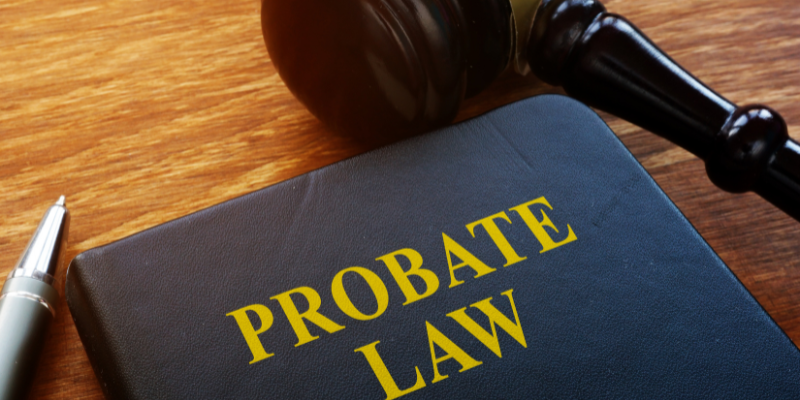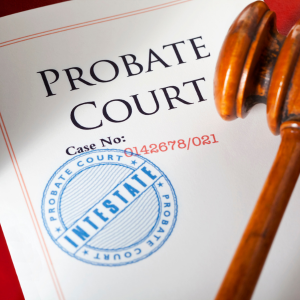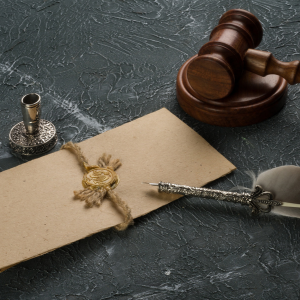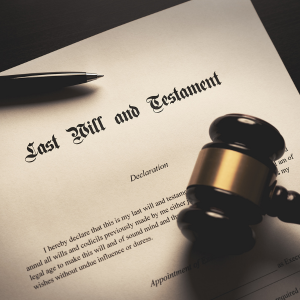
Sell your North Carolina probate house efficiently with Cardinal Home Buyers, ensuring a smooth process by leveraging expert guidance to elevate property value and reduce stress. Benefit from our expertise in navigating the complexities of selling a probate house in the North Carolina real estate market.
Selling a North Carolina Probate House: Initial Steps
Navigating the Probate Process: What’s the First Step?
The first step in handling the probate process in North Carolina is to appoint an executor. This person manages the deceased person’s estate, which includes real estate. The process begins when the executor files a petition with the probate court. This action officially starts the legal procedure to settle the deceased’s affairs.
Once the court appoints the executor, they gather and list all the deceased’s assets. Real estate often plays a significant role in the estate, requiring careful attention. Understanding the steps and responsibilities involved is key to managing this complex process.
Essential Documents for a Smooth Probate Sale in NC
Knowing the necessary documents to sell a probate house in North Carolina is important. Key documents include:

- Will: If there is a will, it details how assets, including real estate, should be managed.
- Court Orders: These allow the executor to manage and sell assets from the estate.
- Attorney Documentation: An experienced probate attorney can help prepare and file essential documents, ensuring all legal requirements are met.
Having these papers ready speeds up the probate real estate deal, avoiding delays and possible legal issues.
Property Taxes and Maintenance: Who’s Responsible During Probate?
During probate, the executor handles property taxes and maintenance. They must ensure utility companies are paid and that the property is maintained. This includes managing expenses like repairs and upkeep to preserve the property’s value.
Because the executor works hard to meet these duties, fines and property damage are avoided. During the probate time, things will go smoothly if you know who is in charge of these things. How to settle disagreements between heirs: legal and mediation options
Heir disputes can complicate probate. It is crucial to resolve these disputes in order to finalize the estate. The following is the appropriate course of action:
- Mediation is when a third party who is not involved in the case helps the heirs reach an understanding. It’s not as official and costs less than going to court.
- Formal Options: If mediation doesn’t work, you may need to take formal action in probate court, such as
- When you file a petition: you ask the court to decide how to divide your assets.
- Litigation: this is an official court process for settling disagreements. It takes a long time and costs a lot of money.
- Talk to a Lawyer: Heirs should talk to an estate lawyer who knows North Carolina law to learn their rights and choices.
Resolving disputes peacefully benefits family harmony and helps complete the probate process efficiently.
Understanding Fees and Costs Associated with Probate Sales

Probate sales can involve various fees and costs. Knowing these helps avoid surprises:
- Attorney Fees: It is beneficial to work with a lawyer who is knowledgeable in probate. Recognize their fees in order to properly budget.
- Charges of Real Estate Transactions: Talk to your agent about commissions, closing charges, and other fees. Clearly state what is included in each fee.
- Additional Costs: Consider maintenance, inspection, and appraisal expenses. A thorough cost analysis aids in financial planning.
Ensuring a Fair Property Appraisal: Best Practices
A fair property appraisal is crucial for setting the right market value. Follow these best practices:
- Select a Qualified Appraiser: Choose an appraiser with certification and experience in your area. Their experience impacts the accuracy of the value.
- Recognize Fair Market Worth: Find out how the state of the local market affects the worth of your property. As a guide, look at previous sales in the area.
- Be Well Prepared: Prior to the appraisal, tidy and arrange the property. Make small renovations to improve the home’s appearance and potential value.
Finding the Right Real Estate Agent for Your NC Probate Sale
The peaceful resolution of disputes facilitates the efficient completion of the probate process, which also benefits family harmony.
Selecting the Appropriate Real Estate Agent for Your North Carolina Probate Sale
Important Questions to Ask Potential Real Estate Agents
When selecting a real estate agent or broker for your probate sale, it is crucial to pose the following questions:
- Experience: How long have you been managing probate sales? Experience with the probate process guarantees more seamless transactions.
- Market Knowledge: What are the present North Carolina real estate market trends? Knowledge of local market conditions can affect the selling price.
- Past Success: Could you provide instances of profitable probate sales? Ask former clients for references to confirm their track record.
- What tools do you have to promote my house: Reaching possible buyers depends on a good network and marketing plan.
Ensuring a Fair Property Appraisal: Best Practices
A fair property appraisal is crucial for setting the right market value. Follow these best practices:
- Select a Qualified Appraiser: Choose an appraiser with certification and experience in your area. Their experience impacts the accuracy of the value.
- Recognize Fair Market Worth: Find out how the state of the local market affects the worth of your property. As a guide, look at previous sales in the area.
- Be Well Prepared: Prior to the appraisal, tidy and arrange the property. Make small renovations to improve the home’s appearance and potential value
If you need more help with estate sales, contact us at Cardinal Home Buyers for expert advice that is tailored to your needs.
Legal and Financial Aspects of Selling a Probate House in NC
Tax Implications of Selling an Inherited Property in NC
When you sell your home for cash in North Carolina, there are a few tax issues that can affect your money:
- Capital Gains Tax: The profit from the sale may be subject to this tax. The difference between the sale price and the property’s fair market value at inheritance is used to compute the gain.
- Estate Taxes: Depending on the estate’s overall value, federal estate taxes may be applicable even if North Carolina does not have its own. A tax expert should be consulted for precise guidance.
- There is no inheritance tax in North Carolina: Check any applicable federal tax requirements, though.
- Legal Fees and Estate Planning: You can control legal fees and guarantee adherence to state and federal regulations by working with an expert estate planning lawyer.
Knowing about these tax issues can help you stay in line and get the most money out of selling an inherited home.
Distributing Proceeds: Heirs, Creditors, and Legal Requirements
Distributing proceeds from a probate house sale involves important steps to prioritize creditors and heirs:

- Paying Debts and Creditors: Before heirs receive any funds, all debts and obligations, like mortgages and legal fees, must be settled. This makes sure that debts are paid off first.
- Needed by the law: Carefully follow North Carolina’s laws. This means turning in the necessary paperwork and sometimes getting court permission.
- Giving to Heirs: Once the bills are paid, the rest goes to the heirs. Legal advice helps ensure that this is done in a fair and clear way.
- Estate Settlement: A probate lawyer or estate expert can help settle the estate quickly, without any problems, and in line with the law.
These steps help facilitate a smooth transition of ownership and fair distribution of assets.
The Important Part of a Probate Attorney in the Selling Process
Providing vital direction, a probate lawyer is quite important in selling a probate property in North Carolina.
- Handling Legal Complexities: They assist in navigating the complex probate procedure to ensure that all legal requirements are met prior to the sale.
- Court Interactions: A probate attorney represents the estate in court and handles legal proceedings, such as contested claims or disputes.
- Advisory Role: They provide valuable legal guidance about estate sales, reducing the danger of legal difficulties.
- Cost Management: While there are legal fees, their involvement usually proves cost-effective by avoiding unnecessary expenses.
Probate attorneys defend the interests of the estate and its stakeholders, ensuring a successful sale with their expertise.
Post-Sale Procedures and Estate Closure in North Carolina
Typical Timeline for Completing a Probate Sale in NC
In North Carolina, the probate sale process involves several clear stages. The probate process starts when an executor submits a petition to the probate court. This starts the process of managing and giving out the estate’s assets. A normal timeline looks like this:
- Initial Filing: The executor files with the probate court to open the estate. This step can take a few weeks, depending on the court’s schedule.
- Notifying Heirs and Creditors: All possible creditors and heirs are told. This normally takes between 60 and 90 days, which gives creditors time to file claims.
- Inventory and Appraisal of Assets: The agent lists the estate’s property and any other assets. Depending on the complexity of the assets, this could take a few months.
- Real Estate Deal Completion: If real estate is part of the deal, it can be sold. It depends on the market, but it usually lasts for a few months.
- Final Steps and Court Approval: Following the payment of all debts and the distribution of assets, the executor asks the court for final approval to close the estate.
Understanding these steps helps executors navigate the process more efficiently.
Final Steps in Estate Closure and Asset Distribution
In North Carolina, the process of closing an estate necessitates a series of precise actions following the sale of the property’s assets:
- Settle Outstanding Debts: The executor addresses any remaining obligations with creditors to finalize the estate closure.
- File Final Tax Returns: To avoid future legal problems, you must correctly file and pay all of your taxes.
- Obtain Court Approval: The probate court must confirm the executor’s acts before closing the estate.
- Distribute Remaining Assets: Once all bills are paid and the court gives permission, the executor follows the estate plan and gives the remaining assets to the heirs.
A well-organized approach ensures a smooth transfer of wealth, reducing disputes among heirs.
Taking care of the property’s remaining assets after the sale
Once the property sale concludes, the executor must handle the remaining assets effectively. Here are the key steps:
- Financial Planning: Develop a financial plan to allocate proceeds toward debt settlement and their distribution.
- Asset Distribution: Carefully give the money from the sale to the people named in the will or the law of the state where the person died if there is no will.
- Documentation and Reporting: Accurate records are important for openness. Having the right paperwork makes managing and distributing assets clear.
By managing these tasks well, the executor fulfills their role and ensures fair asset distribution. Contact us at Cardinal Home Buyers, a company that buys homes in Raleigh and nearby cities in NC, for expert real estate assistance and support.
FAQs:
How can I sell a North Carolina probate house?
Selling a North Carolina probate house requires numerous processes: obtaining judicial clearance, appointing an executor, and paying all debts and taxes. We can help you comply with laws and get the best pricing.
Are there risks when you foreclose in North Carolina?
Yes, default can hurt your credit score and make it harder to pay your bills. Learn about the process and look into ways to avoid it, such as negotiating with bankers or going through a short sale.
How is selling a house in North Carolina different from other states?
North Carolina has clear rules about what needs to be disclosed and how much the deal costs. Knowing these things can speed up selling and help you get the most money for your home.
What is an estate home, and how does it change the sale of a house?
A divorce home is part of the estate of someone who has died. In order to sell these kinds of properties, bills must be paid off legally before the money is distributed. Getting help from an expert can make this process easier.
Will North Carolina ‘For Sale by Owner’ properties sell?
Yes, FSBO sales are doable but require local market and legal understanding. Successful pricing and marketing are crucial.
Contact our staff for tailored advice or support.
Key Insights
- We offer specialized services to simplify purchasing or selling and fulfill all parties’ needs. (919) 609-5173. Commence immediately!
- Selling a probate house in North Carolina involves knowledge of state laws and inherited property probate. We help you sell North Carolina property quickly.
- Our real estate knowledge ensures legal compliance while selling North Carolina probate properties.
- To obtain the most, consider selling a North Carolina home through an auction house or traditional methods.
- Calculate North Carolina property sales costs, including assessment, insurance, and repairs.
- Cash offers from investors might speed up and simplify the selling of a North Carolina home.
- For a seamless North Carolina probate property sale, understand the duties of probate real estate brokers and attorneys.
- Manage North Carolina real estate sales by managing creditors, debts, and estate planning.
- Understanding legal ramifications and finding alternatives can help you overcome North Carolina foreclosure.
- Our advice on asset distribution and deceased desires aids probate house managers.
- Understand real property law and executor or administrator duties while selling a probate residence.
- North Carolina probate real estate offers excellent returns for investors.
- Our experts can help you sell a probate house, including how to handle difficult situations with sensitivity and expertise.
- Stay current on property market trends and answer typical North Carolina probate property sale queries.
- Expert real estate consultants can help with ownership transfers and estate matters.
Do you need to sell your home? Sell quickly, avoid costly repairs, or prefer a hassle-free sale. Cardinal Home Buyers is here to help. We offer fair cash offers, handle all the details, and make the process seamless. Ready to sell or have questions? Call us at (919) 609-5173 for a no-obligation offer. Get started today!
Helpful North Carolina Blog Articles
- Selling Your Home And Relocating In North Carolina
- Selling A Home With Tenants In North Carolina
- Taxes When Selling Your House In North Carolina
- Selling Your Home Amid Divorce in North Carolina
- Selling A Fixer-upper Home In North Carolina’s Real Estate Market
- Selling A House While it is in Foreclosure in North Carolina
- Selling a Probate House in North Carolina
- Selling Your Home Without A Realtor In North Carolina
- Sell Your North Carolina Home With An Existing Mortgage
- Tenant Damage to Property In North Carolina
- Sell Your Home Despite Mold Issues in North Carolina
- Best And Worst Neighborhoods For Real Estate Investments In NC
- Property Tax Rates For Homeowners And Real Estate Investors In NC
- Understanding North Carolina Quitclaim Deed Rules
- Expert Property Management Services For Homes In North Carolina

